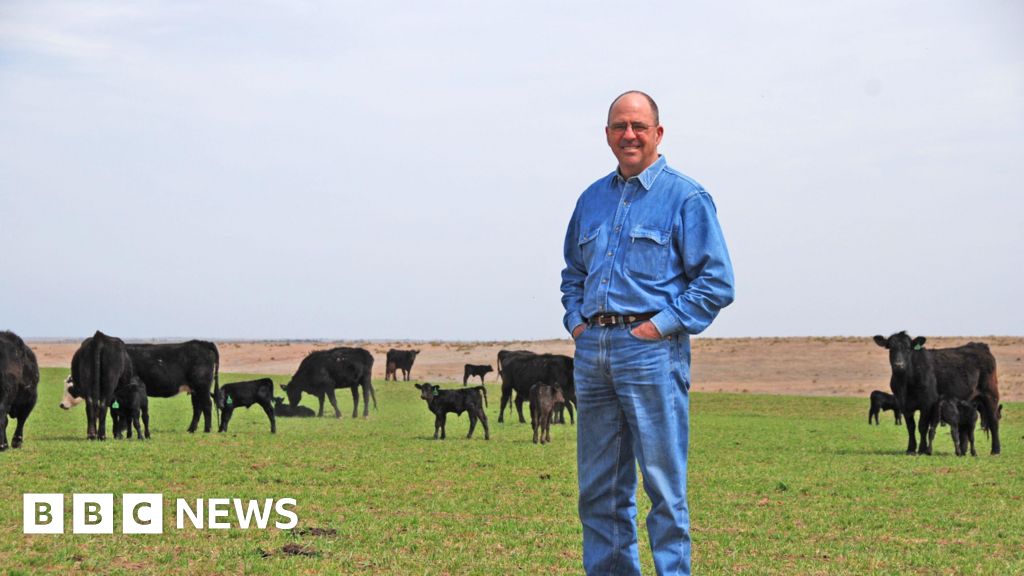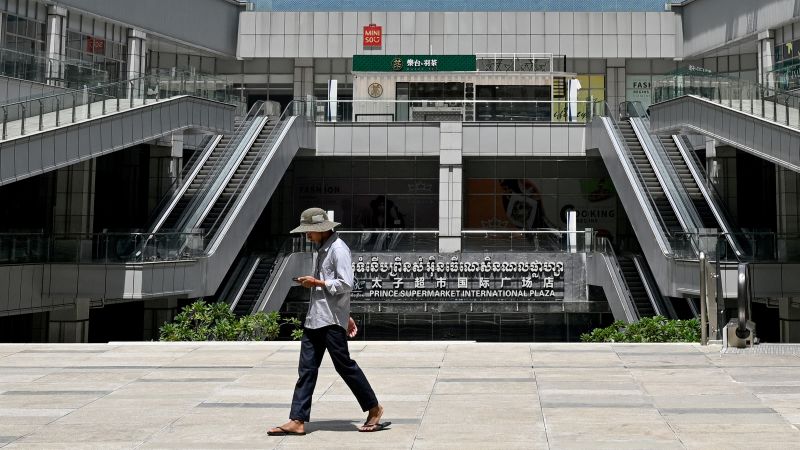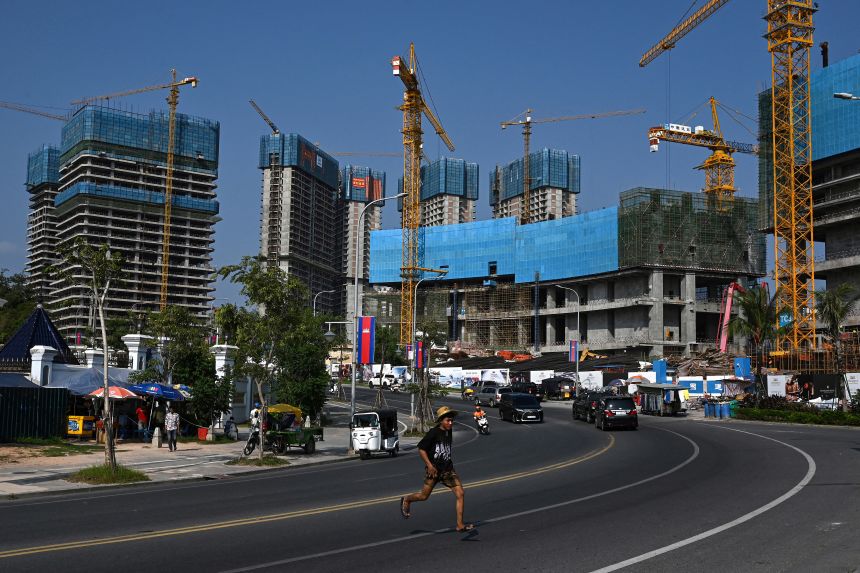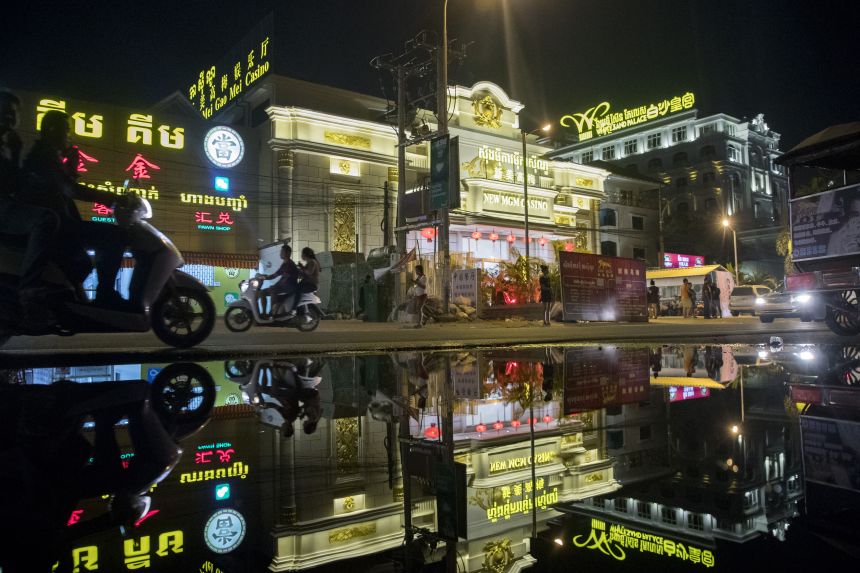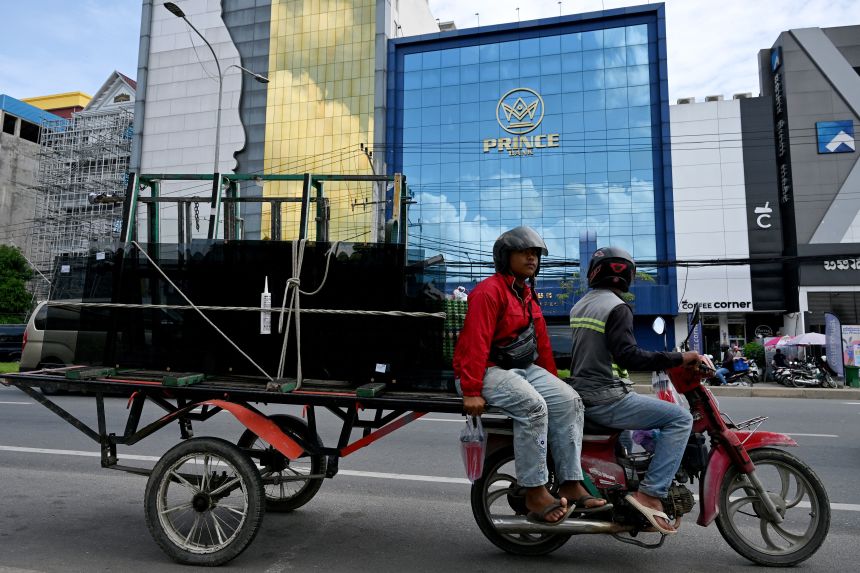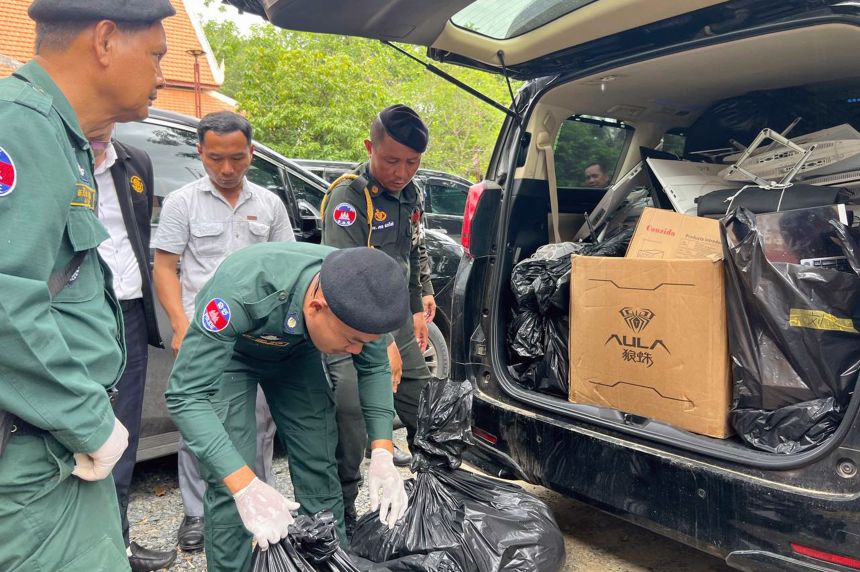Hong Kong
—
He is a baby-faced tycoon who rose to the highest echelons of power in his adopted home of Cambodia, where he bestows scholarships and runs philanthropy programs while overseeing one of the country’s largest and best-connected conglomerates.
But behind this façade, Chen Zhi, 37, runs one of the largest transnational criminal organizations in Asia, US authorities say, an empire fueled by forced labor and cryptocurrency scams that at one point were allegedly earning Chen and his associates $30 million every day.
The money went on buying Picasso artwork, private jets and properties in upscale neighborhoods of London, as well as supplying bribes to public officials, according to prosecutors in New York, who last week announced they had seized $15 billion in cryptocurrency from Chen following a years-long investigation.
That action has thrown a rare light on an alleged kingpin of Southeast Asia’s murky and criminal world of online scams, which US authorities say operate under the protection of powerful politicians, and conned victims in the US alone out of at least $10 billion dollars last year.
Chen’s Prince Group employs thousands of people and bills itself as one of the biggest conglomerates in Cambodia, with investments in luxury real estate, banking services, hotels, major construction developments, grocery stores and even luxury watches.
But last week, the company was declared a transnational criminal organization by United States authorities, and Chen was charged in absentia in New York with money laundering conspiracy and wire fraud conspiracy, along with several associates.
He is still at large, and currently faces no legal threat in Cambodia, which has no extradition treaty with the US.
Prince Group, American and British authorities allege, was the umbrella for more than 100 shell companies and entities allegedly used to funnel laundered cash across 12 countries and territories from Singapore to St Kitts and Nevis.
“Chen Zhi isn’t a mob boss as we traditionally conceive of them – he is (or rather was) the polished face of a state-protected criminal economy,” said Jacob Sims, visiting fellow at Harvard University’s Asia Center and a transnational crime expert.
CNN has reached out to Prince Group for comment. CNN has also reached out to the Cambodian government and interior ministry for comment.
Prince Group has previously denied allegations of wrongdoing as “false and defamatory” in statements published on its website. Those statements have since been taken down.
Little was known about Chen, also known as Vincent, until he arrived in Cambodia and began splashing enormous amounts of cash.
He was born in China’s southeastern province of Fujian on December 16, 1987, according to the US Treasury Department.
His first business ventures were reportedly an internet café and gaming centers in the provincial capital Fuzhou. In 2011, he plunged into the “uncharted waters of real estate investment in Cambodia,” according to a profile on the website of DW Capital Holdings, a Singapore-based fund manager that lists Chen as its founder and chairman, and which is among the companies sanctioned by the US.
In those “uncharted waters,” a rush of mainly Chinese developers started building casinos in the western Cambodian city of Sihanoukville in the 2010s, turning the quiet seaside town and backpacker haven into a roaring gambling mecca, encouraged by lax regulation and the easy availability of casino licenses.
With the casinos and online gambling came organized crime, money laundering, prostitution, drug trafficking and online scamming. The town was described as a “wild west” where a prolific business-crime nexus emerged.
Shortly after his arrival in Cambodia, Chen became a naturalized Cambodian citizen – an option available to applicants who donate $250,000 to the state. Analysts say he acquired venerable titles and rapidly gained influence with the Cambodian elite.
He was elevated to be a senior adviser to the government at the rank of minister, was personal adviser to former Prime Minister Hun Sen, and then his son and successor Hun Manet, and bestowed with the honorific “neak oknha,” a title awarded to prominent businesspeople.
Video posted by the former Cambodian leader shows Chen standing alongside Hun Sen in 2022 during a meeting of investors. Chen was also part of a delegation that traveled with Hun Sen to Cuba in 2022, during which he met Cuban President Miguel Díaz-Canel and was listed as an “adviser” to Hun Sen.
According to the US indictment, Chen also traveled to the US in April 2023 using a diplomatic passport – a document it alleges Chen obtained after purchasing luxury watches for a senior foreign government official.
Browse the website of Chen’s Prince Group, and the company’s public image is one of charitable endeavors, business accolades and awards for corporate social responsibility initiatives, large donations to anti-Covid efforts, and education programs.
The group’s charitable trust claims to have donated funds worth $14 million to help Cambodians in a range of initiatives. The company even opened a Prince Horology Vocational Training Center, billed as the country’s first independent watch school.
And it commands a visible presence in the country, with skyscrapers dotting the skylines of Cambodia’s cities. Through its subsidiary Canopy Sands Development, Prince Group has embarked on a $16 billion project near Sihanoukville to develop a 934-hectare “eco city” called the Bay of Lights.
But federal prosectors allege that empire extended to at least 10 forced labor camps in Cambodia, where workers were coerced into carrying out scams “at high volumes” under the threat of violence. The indictment described vast dormitories surrounded by high walls and barbed wire where incidences of violence and coercion were “frequent.”
From alleged organized crime investments in Palau to shell companies in the British Virgin Islands, Hong Kong and Singapore, investigators implicated 146 entities and individuals linked to Chen, his Prince Group and associates.
“It’s really remarkable in terms of both the state, the scale and size of what they’ve seized, but also the extent to which they’ve been able to identify and target so many of the different nodes of this particular criminal network,” said Jason Tower, a senior expert at the Global Initiative Against Transnational Organized Crime (GI-TOC).
As well as Cambodian citizenship, Chen is listed by the US Treasury Department as having passports from Cyprus and the small Pacific island of Vanuatu.
Several of the addresses listed to Chen are in Hong Kong. Construction and engineering services firm Geotech Holdings – which has seven subsidiaries, each sanctioned by the US government – has headquarters in Kwai Chung, home to the city’s container port. The company did not respond to CNN’s request for comment.
Authorities also allege Chen and his co-conspirators bribed public officials in China and elsewhere to stay ahead of investigations and raids on the forced labor compound. Chen kept ledgers of bribes, according to the indictment, and in 2019 a $3 million yacht was bought for a senior official in an unnamed foreign government.
By approximately 2020, Chen had allegedly amassed a staggering sum of laundered proceeds that included approximately 127,271 bitcoin worth $15 billion across unhosted cryptocurrency wallets whose private keys he personally held.
Chen mastered a combination of elite access, patronage and philanthropy “that opened doors across real estate, finance, and politics, ultimately providing him the resources and protection needed to grow his scam empire,” said Sims.
Cambodia has been described by analysts as a de facto scam state that risks becoming a global pariah if it fails to act against the criminal networks within its borders.
The global scam industry, estimated to be worth between $50 billion and $70 billion, is evolving at an unprecedented scale, the United Nations Office of Drugs and Crime said earlier this year, despite widely publicized crackdowns on scam compounds in Myanmar.
Cambodia, which has emerged as an epicenter of this scam economy, is estimated to make $12.5 billion to $19 billion a year from cybercrime – equivalent to about 60% of the country’s GDP, according to a report published by the Humanity Research Consultancy in May.
In June, an Amnesty International report accused the Cambodian government of “deliberately ignoring a litany of human rights abuses including slavery, human trafficking, child labour and torture” carried out by criminal gangs in scamming compounds across the country.
And the US State Department named Cambodia a state sponsor of human trafficking in its 2025 Trafficking in Persons report, which noted that senior Cambodian officials owned properties used by online scam operators to exploit victims.
Analysts estimate there are about 300 scamming compounds in the country with a workforce of up to 200,000 people. Cambodia’s garment and textile industry, long a mainstay of its economy, employs about 1 million people, according to the UN.
The Humanity Research Consultancy report, authored by Sims, goes further, detailing how the Cambodian leadership and Cambodian state institutions are “deeply and directly implicated in the growth, durability, and flourishing” of the country’s scam industry.
“The charges focus on Chen and Prince, not the state per se, but the pattern is unmistakable: you don’t build ten forced-labor scam compounds, move billions, and buy impunity without political protection,” Sims said. “It is impossible to imagine that such vast wealth would be moving through the system without the explicit knowledge and participation of its strongman and his immediate circle.”
The criminal operations have gone largely unchallenged in Cambodia due to the complete dismantling in recent years of the country’s civil society and independent media.
In October 2024, the arrest of prominent Cambodian journalist Mech Dara, who helped expose the human trafficking fueling online scam centers, prompted widespread international concern.
“Civil society in Cambodia has been decimated,” said GI-TOC’s Tower. “And anyone who goes and reports on this issue now they’re silenced. So there’s no space to report on the scam economy, or to raise these issues in the media, civil society can’t touch it.”
The Cambodian government has repeatedly denied any link to the cybercrime industry, and said this month that it is “committed to preventing and suppressing all forms of cross-border crimes, particularly online scams.”
Earlier this year, Prime Minister Hun Manet established a commission to target the scammers. The government says it has led to the arrest of 3,455 suspects, of 20 nationalities, accused of cybercrime. Authorities also say they have broken up several organized crime and trafficking networks, rescuing human trafficking victims in the process.
“We do not protect individuals who violate the law,” Cambodia’s Interior Ministry spokesman Touch Sokhak told the Associated Press news agency regarding Chen. He stressed that Cambodia’s government itself does not accuse Prince Group or Chen of wrongdoing.
The ministry has also rejected reports that Interior Minister Sar Sokha is a co-investor in the Jin Bei Casino Company – which the US Treasury said runs “among the most notorious” of Prince Group’s scam compounds. Meanwhile, the National Bank of Cambodia said it was “taking careful monitoring and investigation measures” to ensure Prince Group’s financial services arm Prince Bank “complies with Cambodian laws.”
Cambodia is “at a crossroads,” said Tower.
The UK-US action “sends a very strong signal to both the criminal networks, as well as to those elites in Cambodia that are protecting them, and sponsoring them… that this type of impunity is not going to continue, that your assets are no longer safe. And so, I think it is potentially a game changer,” Tower said.
Regional countries have begun to act against the crime flourishing inside Cambodia’s borders that has ensnared their citizens.
South Korea last week issued a travel ban for parts of Cambodia after the death of a South Korean student lured to work in the scam compounds, according to police. More than 60 South Korean nationals were deported from Cambodia and police are seeking to detain most of them over allegations they were involved in online scams.
Chen is at large, with a net worth somewhere in the tens of billions, analysts believe. And the scam compounds in Cambodia continue to operate, stealing money from victims including US citizens.
“It’s not like there’s an off button that you can push to stop all of these scam centers,” said Tower.
The question now turns to whether the US, UK and their allies can use the leverage from their joint operation effectively to dismantle the highly lucrative industry.
“This is the first time Washington and London have hit the architecture – the elite ownership, the laundering conduits, and the money itself – at the very top,” Sims said.
“Blunting (Cambodia’s) ability to operate as a de facto scam state will not only materially disrupt the crime today, it will also serve as an effective deterrent model as this crime continues to spread globally,” he added.
“Now is the time to keep the pedal down.”
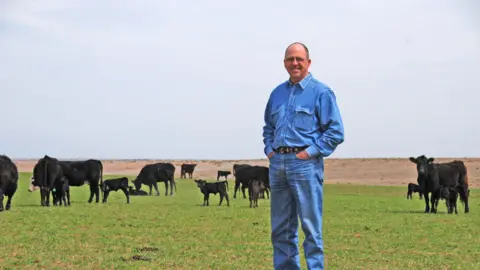 Mike Callicrate
Mike Callicrate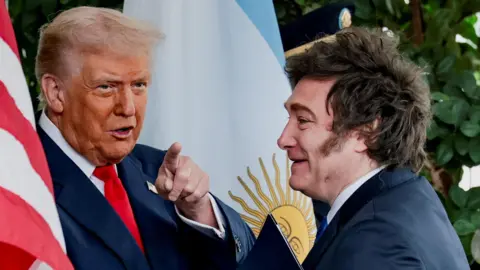 Reuters
Reuters Bill Bullard
Bill Bullard